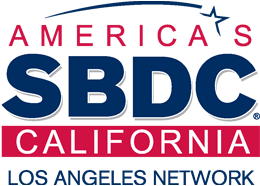Starting a small business enterprise on eBay, Amazon Webstore, Etsy or even Craig’s List has become an increasingly popular option for entrepreneurs looking to get instant visibility and access to a massive online marketplace.
But how do you go about becoming a serious eBay seller and forming a business around your enterprise? At what point does your enterprise become more than just a hobby? Will you need to get a business license, incorporate, and pay sales tax?
Here are some answers to these and other common questions about moving beyond just selling online to becoming a serious online business owner.
Do I Need to Form a Business to Sell on eBay, Amazon, etc.?
Actually, no – as long as you aren’t making a profit, you can buy and sell on these sites without formalizing a business entity. To the IRS, you are a hobbyist.
It might even be a good idea to test the waters this way to give you an idea of what you’re getting into before diving in head-first. But remember, once you start making a profit, the IRS will consider you a for-profit business and you’ll need to report any income you earn. Since neither eBay nor PayPal reports transactions to the IRS, it’s up to you to report your profits.
For more information check out IRS guidance on when your online marketplace activities are a considered a hobby and at what point they become a business.
What Do I Have to Do to Make It Formal?
If you are serious about selling on eBay or Amazon, then you need to behave like a business: obtain a license and/or a permit, register with the local authorities, obtain a sales tax permit, and determine how you structure your business.
How? Follow SBA’s 10 Steps to Starting a Business for some great tips. Some things won’t apply to you. You may not have employees, for example, so skip the part about being an employer. Here are the steps to pay attention to:
– Write a business plan – A business model that relies 100 percent on another company for its revenues is risky. So plan your entry into the online marketplace carefully. When writing a plan for starting an eBay or Amazon business, think about what you’re selling. How will you position yourself? Will you concentrate on specific brands at a discount? How will you differentiate yourself from the competition? What kinds of margins are you shooting for and how will you achieve that with the inventory you have? Try to predict a profitability point where you’ll be able to extend your online marketplace business with your own online business.
– Finance your business – You may not need a business loan, but it’s useful to plan your options. Could you fund initial inventory with savings or credit? Could you borrow from friends or family? Would a microloan be a good fit?
– Register your business – Don’t overlook it; it’s not only the law, but it also affords several benefits. For instance, it will enable you to open a business bank account, write off business expenses, and help you leverage competitive pricing agreements with wholesalers. Registration involve several steps, not all of them necessary, but important to be aware of:
- Register a “Doing Business As” Name – If you are operating an online store under a name other than your own, you may need to register a “Doing Business As” name, also known as a DBA, trade name or assumed name. You can do this directly with your local government. If you’re not sure whether you need to register a DBA, check with your local government office.
- Choose a Business Structure – Many small businesses operate as sole proprietorships, meaning there is no legal difference between your business and you, as an individual. You’ll also file your business taxes on your personal income tax. No formal action is needed to form a sole proprietorship. Often, online marketplace business owners file for incorporation or become an LLC to help separate their business and personal finances and gain legal protection as a business entity. Consult a lawyer or legal expert to help you determine the pros and cons of incorporation and how to register.
- Obtain Licenses and Permits – These are a necessary part of doing business and are required by your state and local government. Even online and home-based businesses cannot operate legally without them. Use SBA’s License and Permit tool to find out what’s required.
- Get a Sales Tax ID or Permit – You’ll need a sales tax ID in order to collect and pay sales tax. The law about collecting sales tax online can be confusing and is explained here. Many online marketplaces offer tools to help you calculate sales tax, but as of now, it’s your responsibility to pay it. In order to collect sales tax, your state may require you to obtain a sales tax permit. You can find SBA’s links to state tax resources here.
- Get a Federal Tax ID – If you have employees or are structured as a partnership, corporation or other types of organization, you’ll need to get an Employer Identification Number (EIN) from the IRS. It’s the business equivalent of a social security number. You can apply for an EIN from the IRS online.
While these are some of the main legal steps you’ll need to follow, there are other important considerations, including:
- Pay estimated taxes
- Maintain good records so you can maximize your tax deductions
- Separate your personal and business finances – Open a business bank account (this will help you facilitate PayPal transactions) and apply for a business credit card
- Engage the experts – Consult a tax specialist or accountant. They don’t have to be on retainer, but can provide great advice as you get started in business. Local resources including Small Business Development Centers, Women’s Business Centers, and SCORE offer free training and counseling to small business owners.





